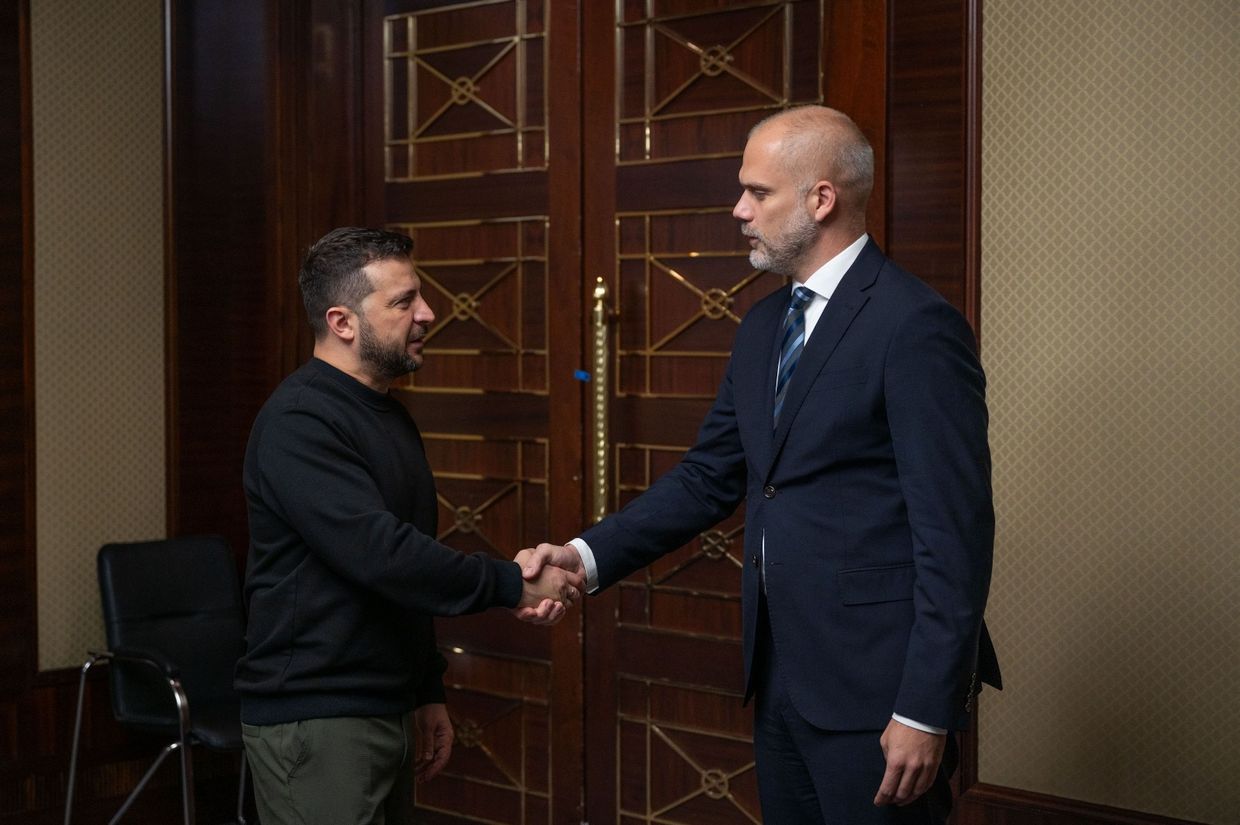Slovakia scrutinizes Ukrainian trucks amid long lines at border

Slovakia's police, labor inspectors, and Transport Department officials are conducting checks on Ukrainian trucks stuck at the Slovakian border, the Slovak Transport Ministry said in a statement on Nov. 15.
The line is mainly made up of Ukrainian vehicles, many of which do not meet requirements and lack certain documents, the ministry believes.
The authorities are checking the condition of the vehicles, customs documents, whether the trucks are overloaded, whether drivers are taking mandatory breaks, and whether drivers are drinking alcohol.
Huge lines of Ukrainian trucks formed at the Slovakia-Ukraine border after Polish truckers started blocking three border crossing points on Nov. 6, in protest of the liberalization of transport rules for Ukrainian trucks.
Polish truckers claim that the lack of entry permits for Ukrainian trucks was hurting business for Polish drivers. They are also calling for a ban on transportation companies from outside the EU.
After the protest at the Polish border started, trucks diverted to Slovakia's Vysne Nemecke border crossing, causing an 18-kilometer line on Nov. 11.
Ukraine's State Customs Service reported on their website that as of the morning of Nov. 16, trucks have to wait 41 hours on average to enter Ukraine from Slovakia.
Volunteers from the local branch of the NGO Malteser International are providing water, hot drinks, snacks, and an place to stay warm to the truck drivers and officials carrying out the checks, the Slovak Transport Ministry said.
The heightened checks come after the Slovak Union of Freight Carriers (UNAS) also threatened to block the border crossing completely if the European Commission does not decide to re-issue permits for Ukrainian trucks, Slovakian media outlet Pravda reported on Nov. 13.
UNAS Chairman Stanislav Skala said that the issue must be discussed at the next Council of Ministers meeting in Brussels at the beginning of December, and that UNAS has asked Slovakia's Transport Minister to propose changes to the rules.
According to EU rules, Ukrainian trucks do not require permits until 30 June, 2024, after the EU and Ukraine signed an agreement in June 2022 to liberalize transport rules.
If the permits are not reinstated, "then UNAS is willing to immediately support Polish carriers at the border and will block the border crossing for Ukrainian carriers from the Slovak side," Pravda quoted Skala.
Ukrainian officials met with Polish truck drivers on Nov. 13 but the talks failed to make progress.
The negotiations failed to end the dispute as the requests of the Polish drivers are "unrealistic at the moment," Deputy Infrastructure Minister Serhii Derkach said on Facebook.
"It was clear that the issue of further blocking the border is not so much to solve urgent issues and problems, but to make a big communication campaign or a political story out of it and keep the border closed for as long as possible," said Derkach.
Derkach emphasized that the border blockade was "a violation of a number of agreements" and called on the Polish strikers to unblock cargo movement immediately.
After the negotiations, Rafal Mekler, a leader of a protest in the Polish border town of Dorohusk, said that "the Ukrainian side does not take our demands into account," the Guardian reported, citing AFP.













